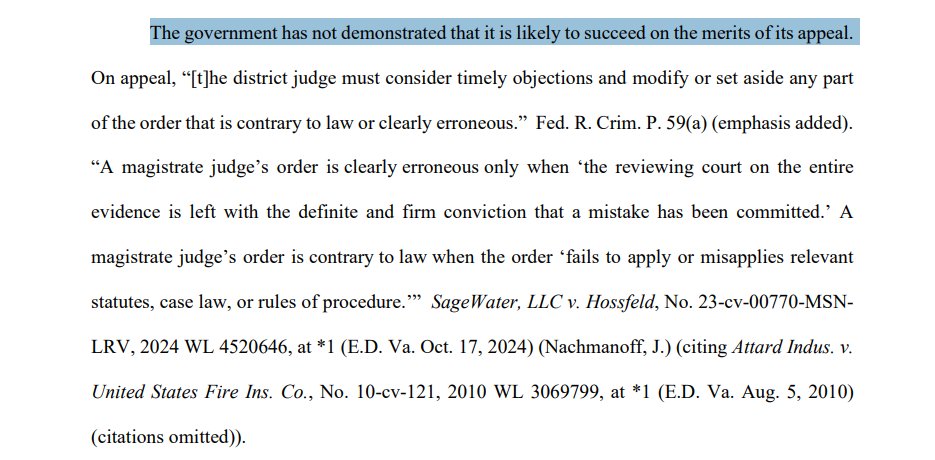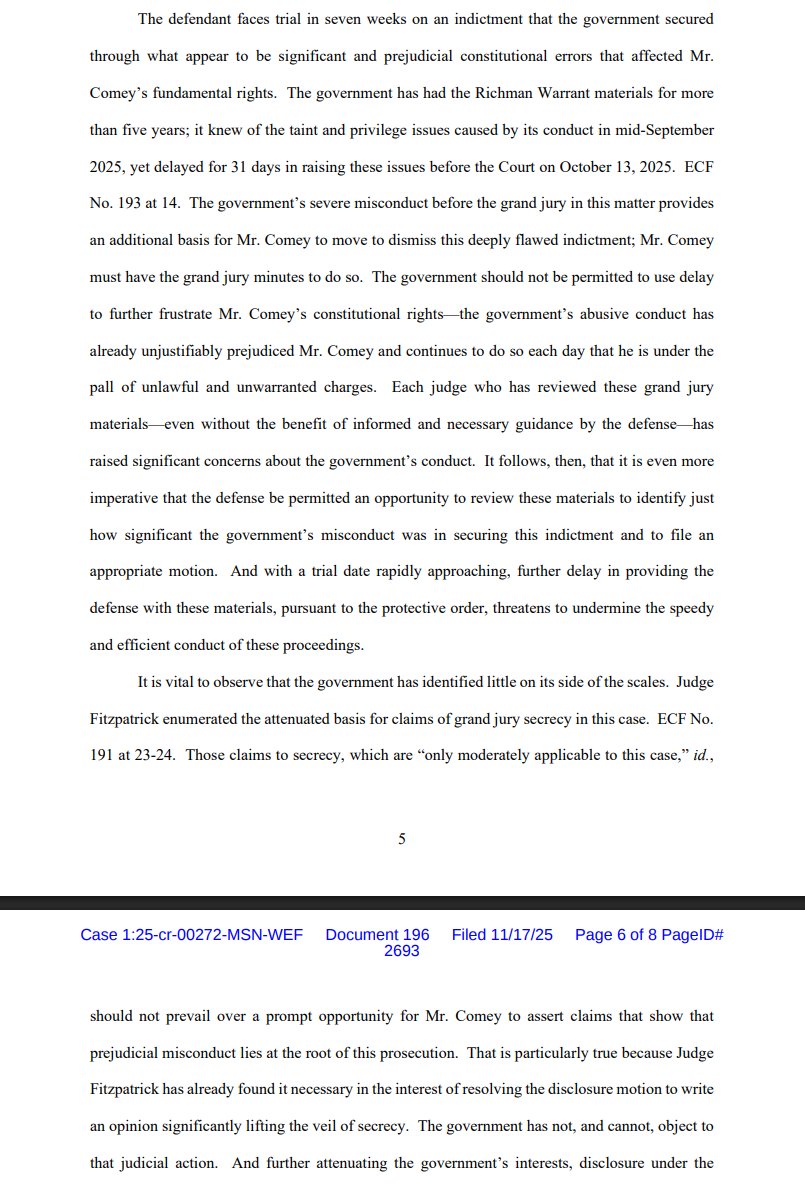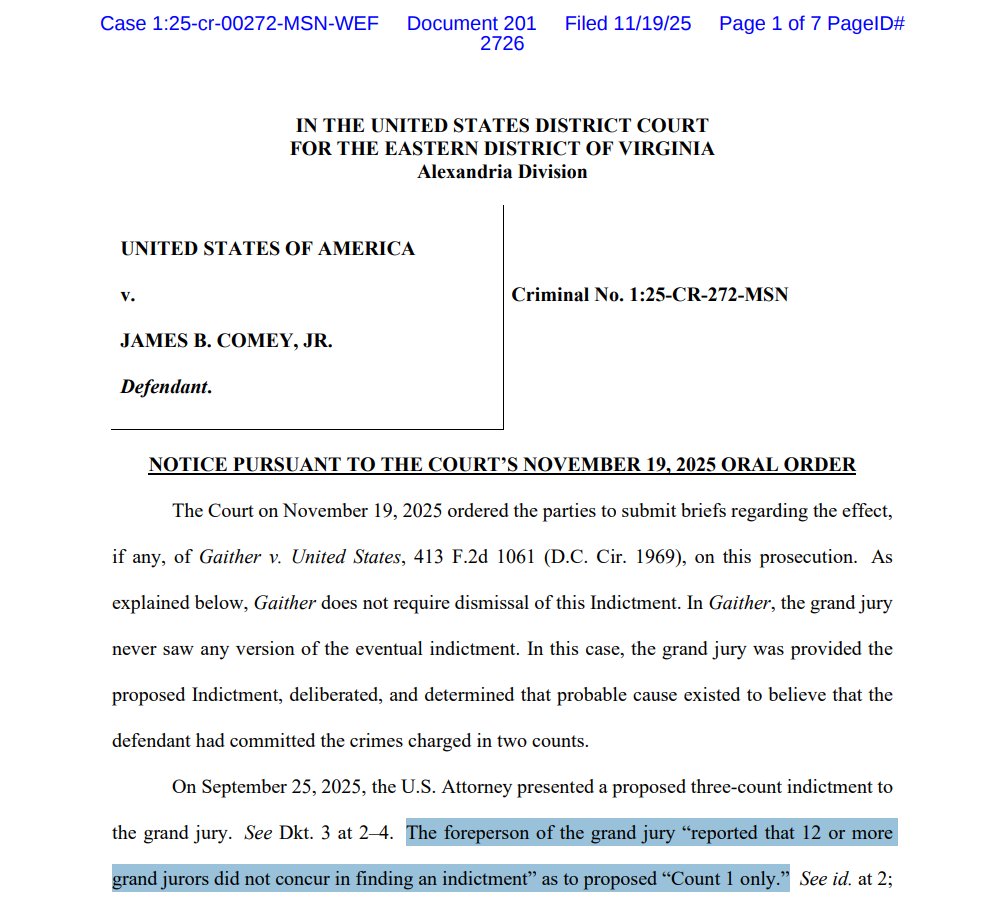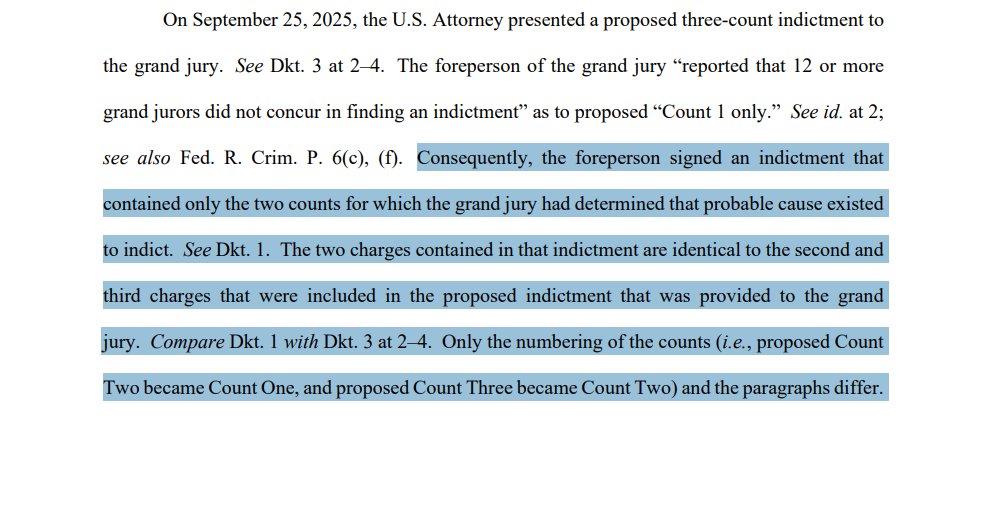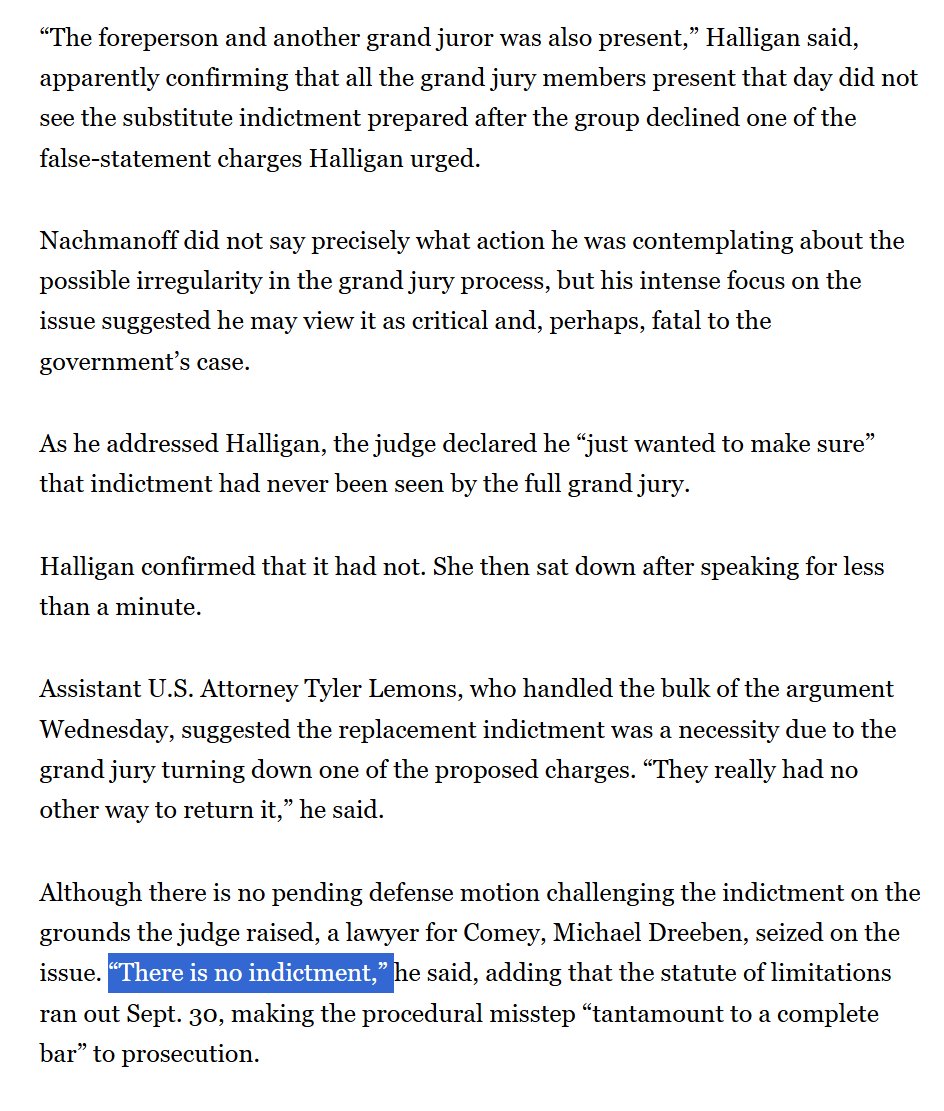🧵United States v. Comey
Hours after Mag. Judge Fitzpatrick's Order (see quoted thread for info), prosecutors filed an emergency motion to STAY the Order.
Defense responded in opposition.
Judge Nachmanoff GRANTED IN PART, staying the order and setting a schedule to resolve.
Hours after Mag. Judge Fitzpatrick's Order (see quoted thread for info), prosecutors filed an emergency motion to STAY the Order.
Defense responded in opposition.
Judge Nachmanoff GRANTED IN PART, staying the order and setting a schedule to resolve.
https://twitter.com/realjusthuman/status/1990485320006357472

It says GRANTED IN PART.
What is the IN PART aspect to this?
Keep reading.
What is the IN PART aspect to this?
Keep reading.
Prosecutors filed the emergency motion pursuant to Fed. R. Crim. Pro 59(a), which allows for a party before a magistrate judge to object to orders within 14 days. The district judge, who is Nachmanoff, must then consider the objection and "modify or set aside any part of the order that is contrary to law or clearly erroneous."
Even though the rule allows for 14 days, prosecutors are asking for just one week.
Even though the rule allows for 14 days, prosecutors are asking for just one week.

Their argument is that Fitzpatrick's order is "contrary to law," that "disclosure of grand jury materials is not warranted under the facts presented to the Magistrate Judge."
"Indeed, the government believes the Magistrate Judge may have misinterpreted some facts he found when issuing the latest order to release the grand jury materials to the defendant."
"Indeed, the government believes the Magistrate Judge may have misinterpreted some facts he found when issuing the latest order to release the grand jury materials to the defendant."
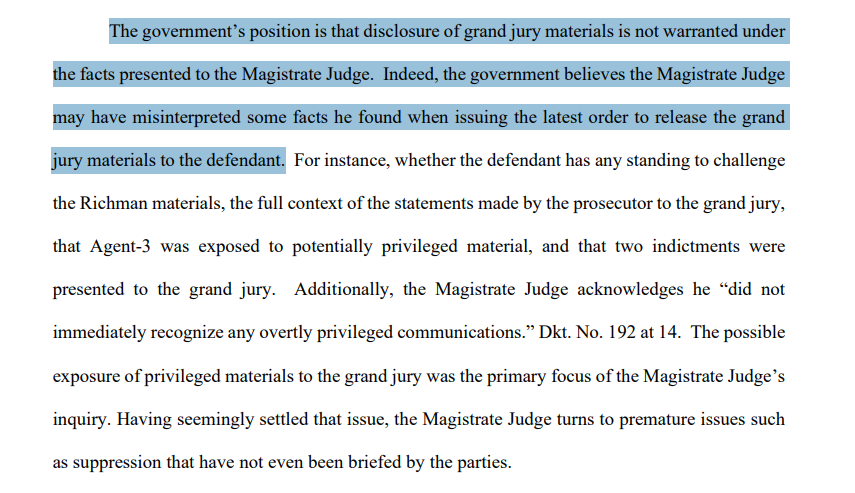
"Additionally, the Magistrate Judge acknowledges he “did not immediately recognize any overtly privileged communications.”" 
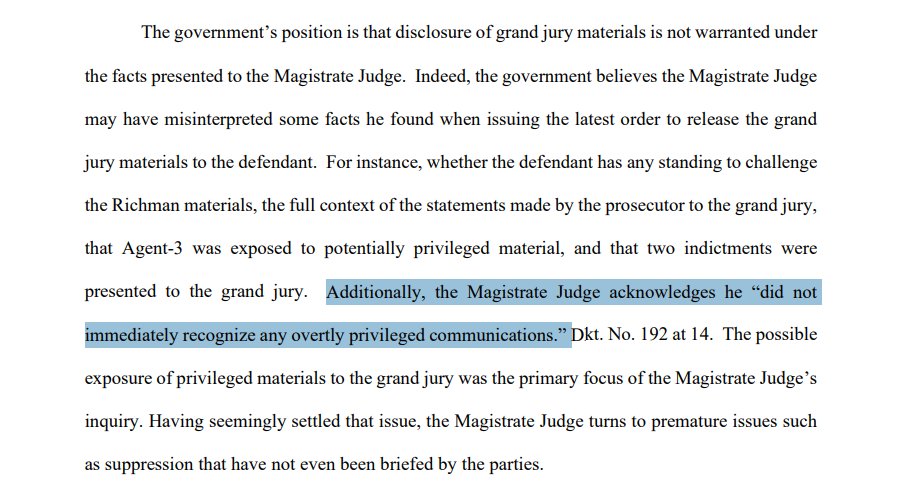
"The possible exposure of privileged materials to the grand jury was the primary focus of the Magistrate Judge’s inquiry. Having seemingly settled that issue, the Magistrate Judge turns to premature issues such as suppression..." 
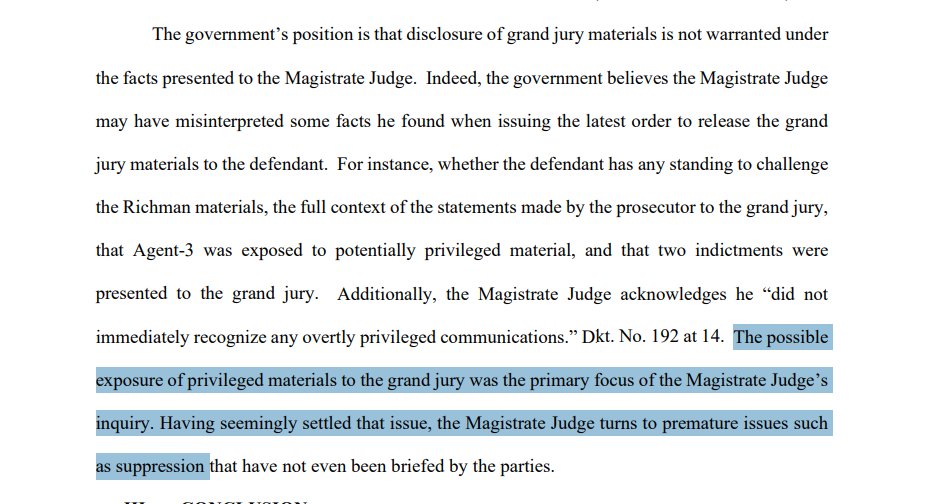
And that's pretty much it. It's pretty light on argument and doesn't address much of what was in Fitzpatrick's order.
Just states the relevant rule, presents a quick background, and offers that the magistrate "may have misinterpreted some facts."
Just states the relevant rule, presents a quick background, and offers that the magistrate "may have misinterpreted some facts."
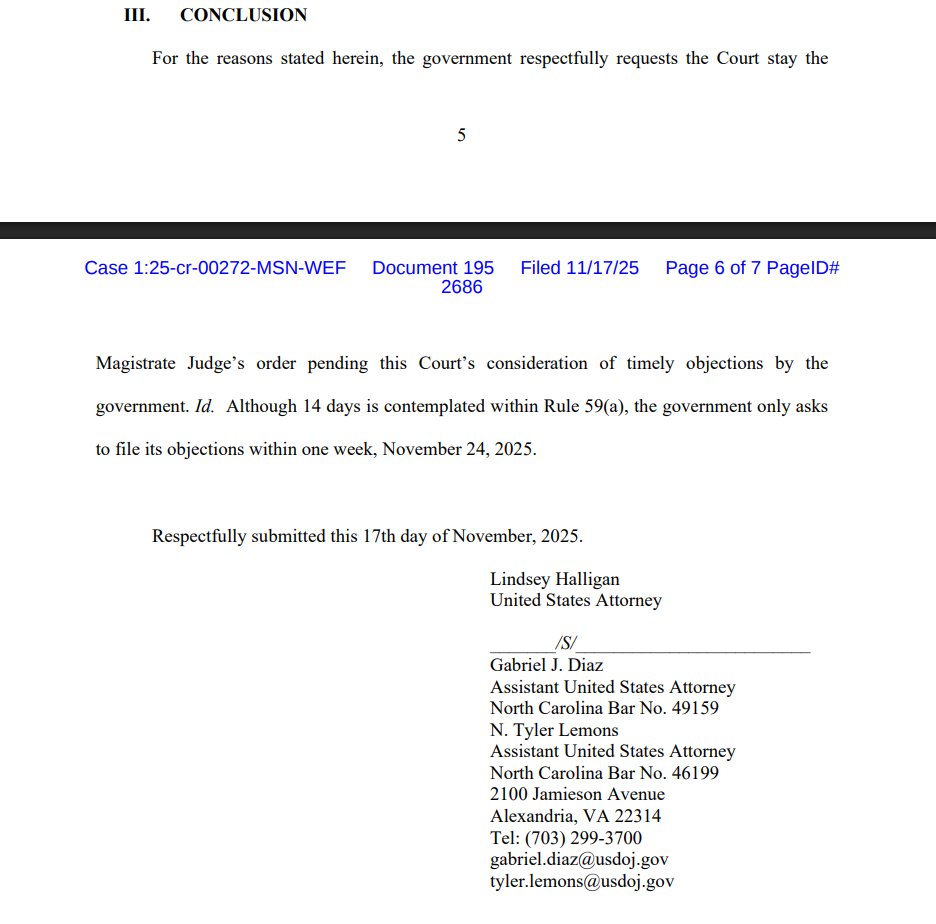
In opposition, the defense argues the "motion for a stay should be denied, but to the extent the Court is inclined to grant such a stay, the Court should order an expedited two-day briefing schedule." 
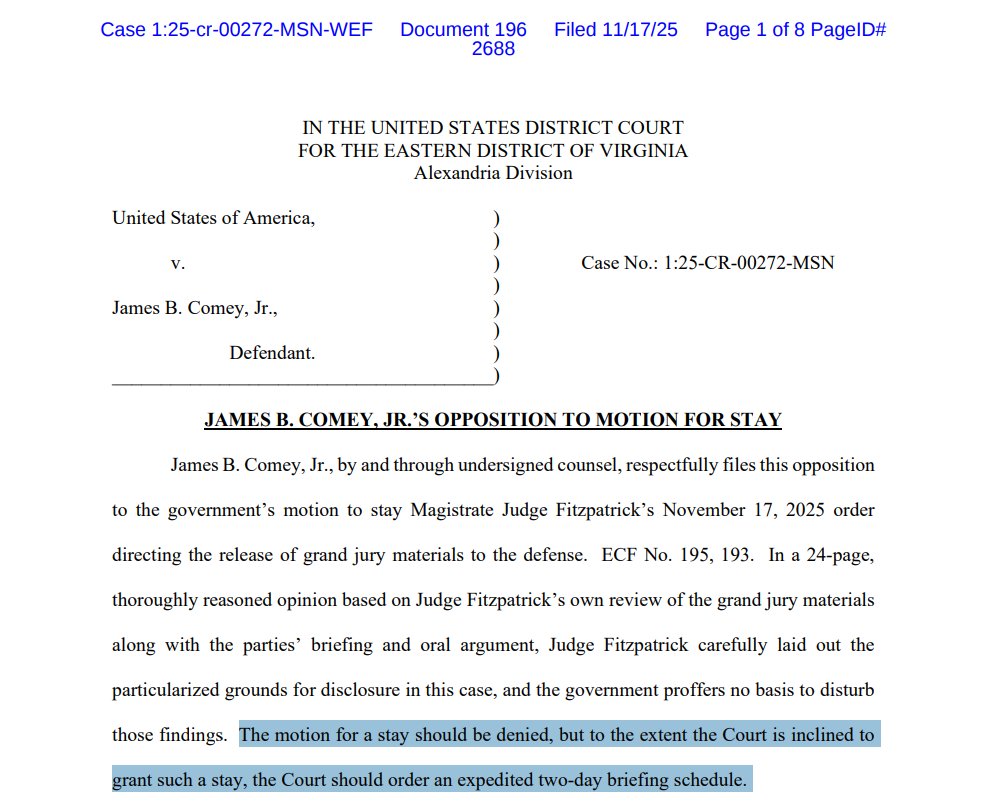
"In any context, “[a] stay is considered ‘extraordinary relief’ for which the moving party bears a ‘heavy burden.’”"
"to determine whether a magistrate judge’s order should be stayed pending appeal, the Court must consider the following factors:
(1) whether the stay applicant has made a strong showing that he is likely to succeed on the merits;
(2) whether the applicant will be irreparably injured absent a stay;
(3) whether issuance of the stay will substantially injure the other parties interested in the proceeding; and
(4) whe[re] the public interest lies."
"to determine whether a magistrate judge’s order should be stayed pending appeal, the Court must consider the following factors:
(1) whether the stay applicant has made a strong showing that he is likely to succeed on the merits;
(2) whether the applicant will be irreparably injured absent a stay;
(3) whether issuance of the stay will substantially injure the other parties interested in the proceeding; and
(4) whe[re] the public interest lies."
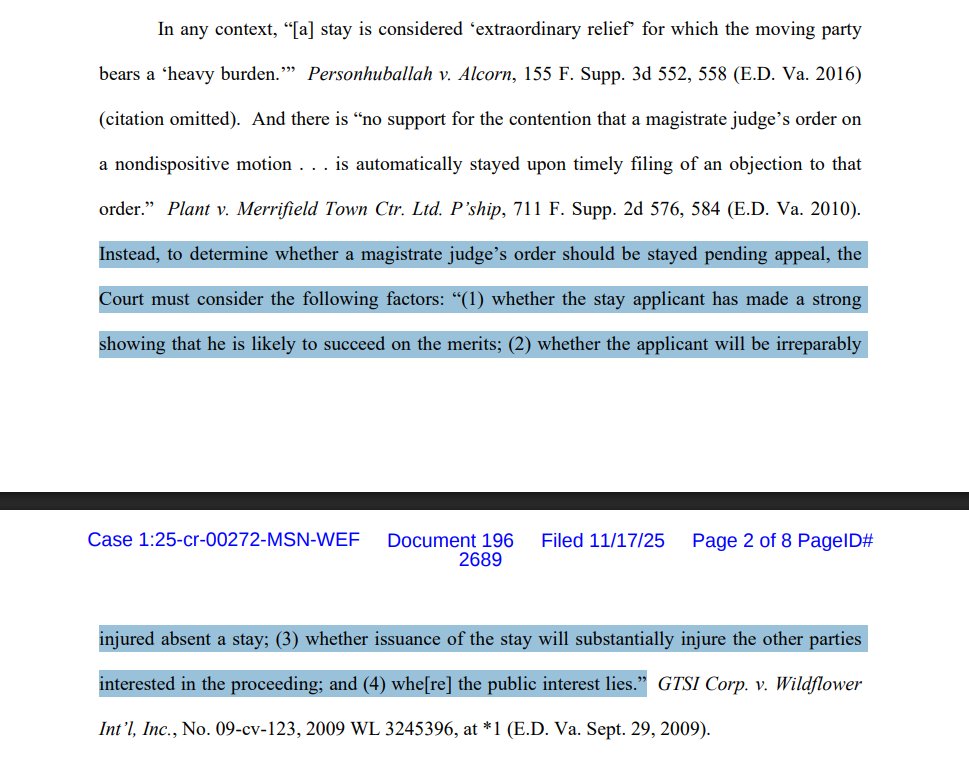
"Here, Judge Fitzpatrick’s opinion carefully and exhaustively reviewed the relevant law, made factual findings, and found that “the procedural and substantive irregularities that occurred before the grand jury, and the manner in which evidence presented to the grand jury was collected and used, may rise to the level of government misconduct resulting in prejudice to Mr. Comey.”"
"Finding nine separate bases for believing that the government’s extraordinary misconduct may provide a basis to move to dismiss the indictment"
"Finding nine separate bases for believing that the government’s extraordinary misconduct may provide a basis to move to dismiss the indictment"
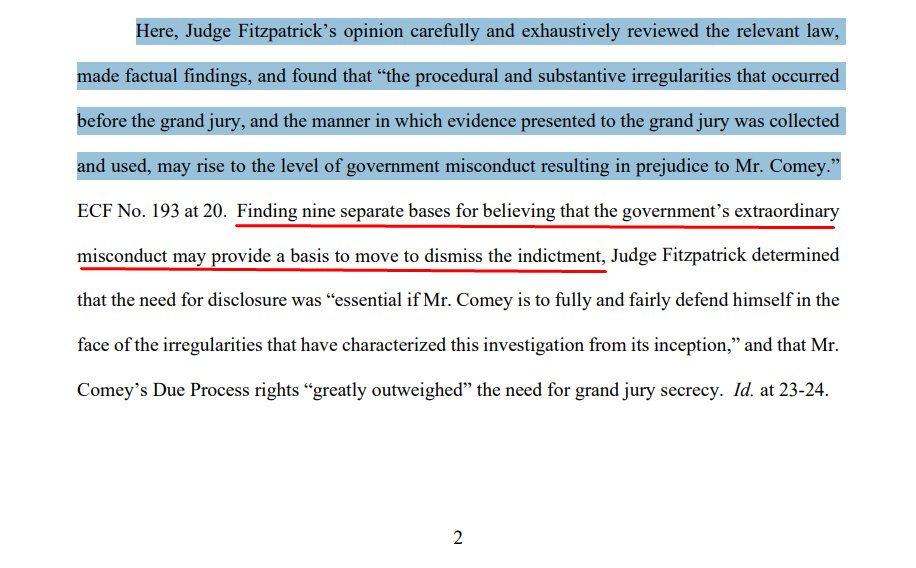
"The government contends in its motion to stay that Judge Fitzpatrick “may have misinterpreted some facts...
...it is difficult to see how Judge Fitzpatrick could “misunderstand” the nature of Ms. Halligan’s statements to the grand jury when they “on their face appear to be fundamental misstatements of the law.”"

...it is difficult to see how Judge Fitzpatrick could “misunderstand” the nature of Ms. Halligan’s statements to the grand jury when they “on their face appear to be fundamental misstatements of the law.”"
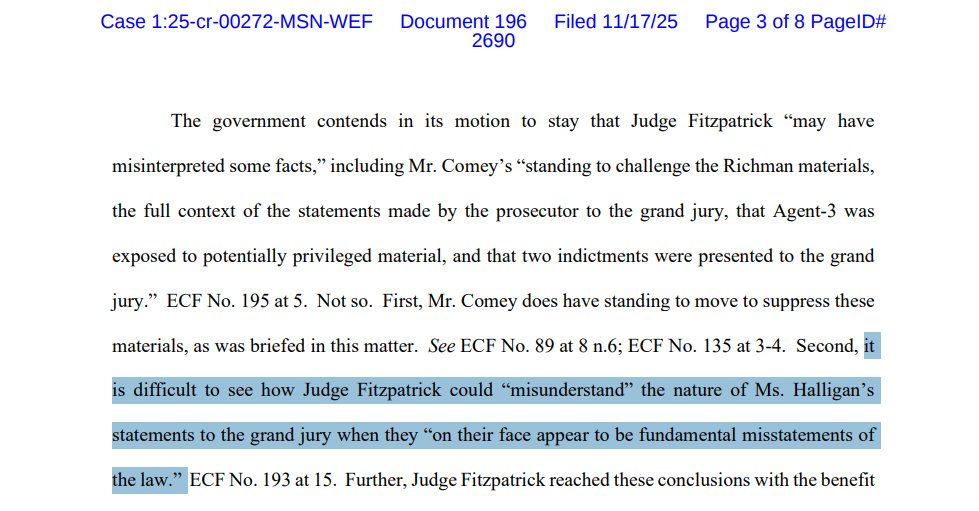
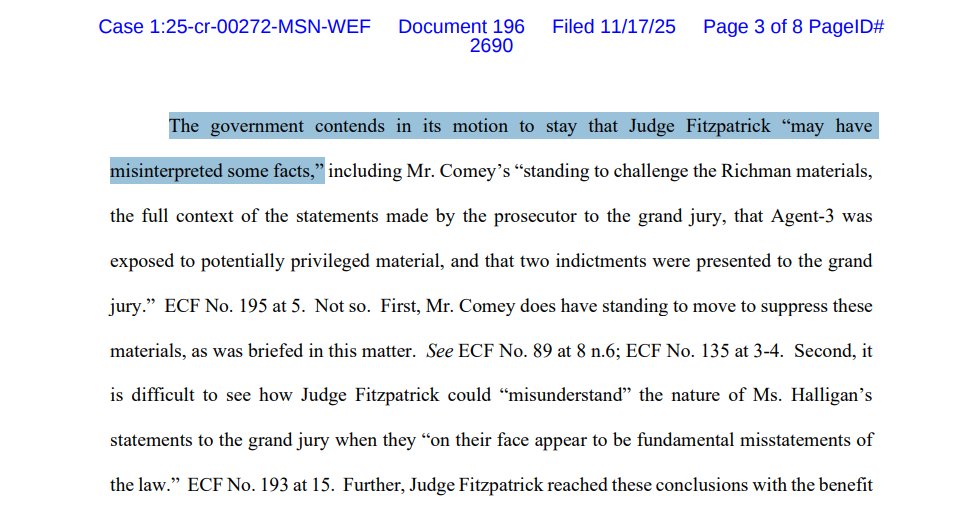
"Judge Fitzpatrick reached these conclusions with the benefit of the full context of Ms. Halligan’s interactions with the grand jury, according to her declaration filed on November 14, 2025" 
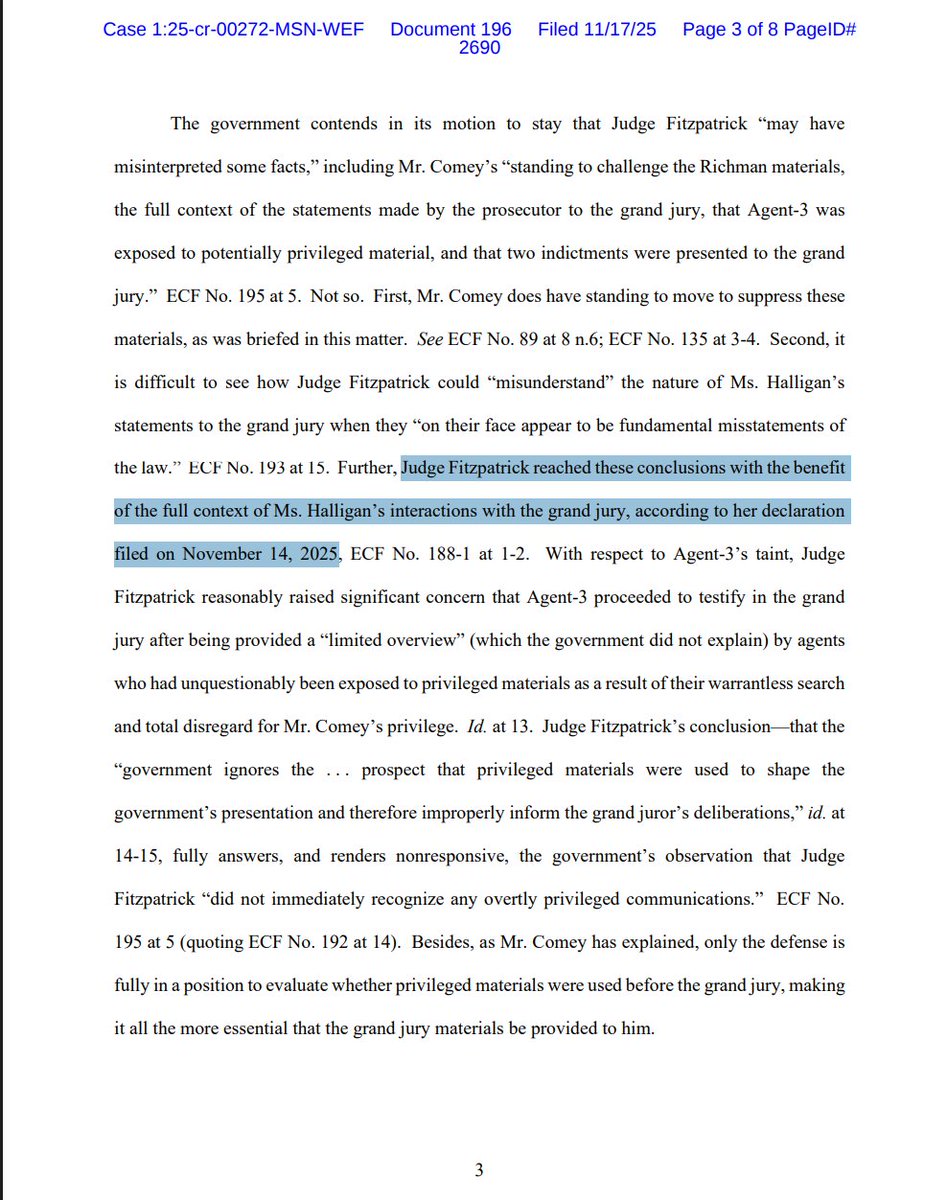
"Judge Fitzpatrick reasonably raised significant concern that Agent-3 proceeded to testify in the grand jury after being provided a “limited overview” (which the government did not explain) by agents who had unquestionably been exposed to privileged materials as a result of their warrantless search and total disregard for Mr. Comey’s privilege."
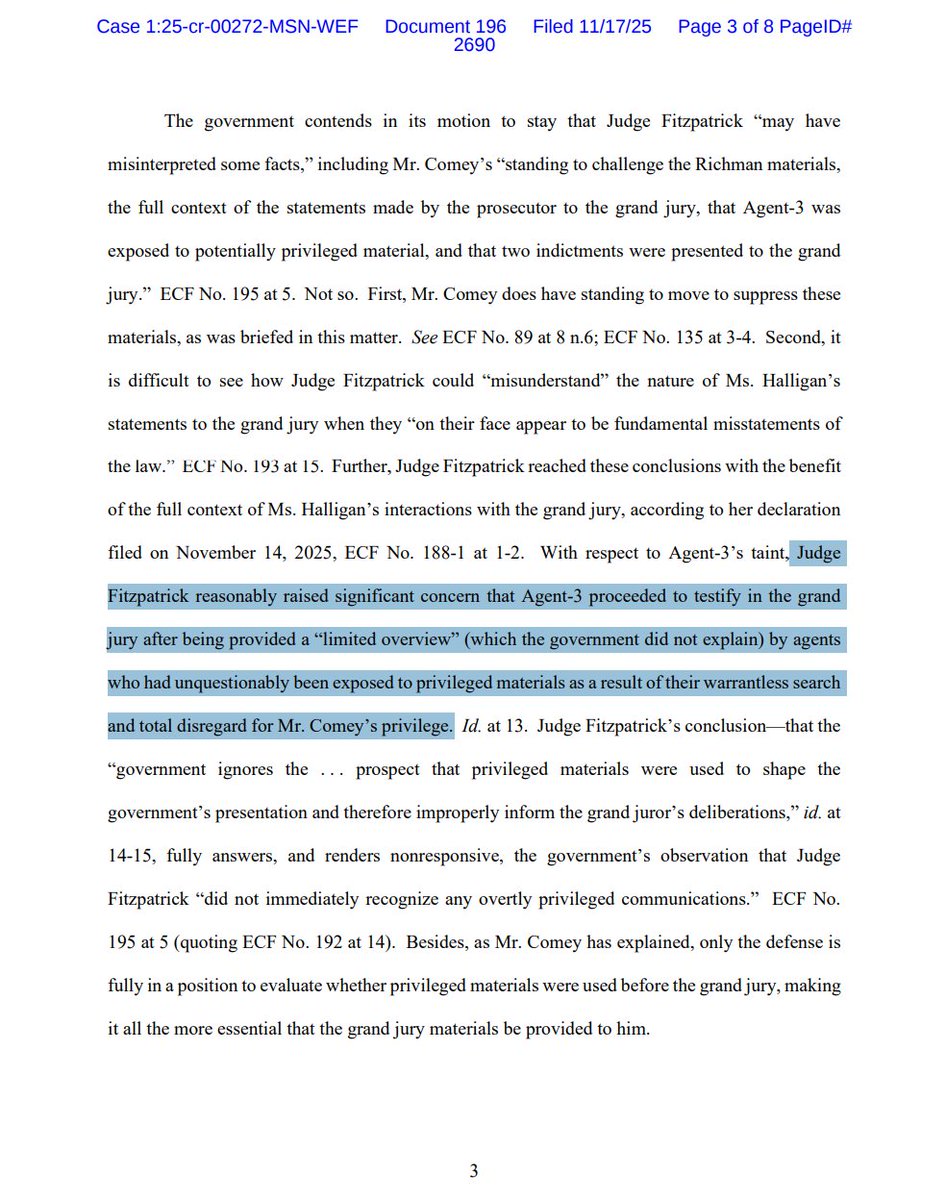
"Judge Fitzpatrick’s conclusion—that the “government ignores the . . . prospect that privileged materials were used to shape the government’s presentation and therefore improperly inform the grand juror’s deliberations,”[] fully answers, and renders nonresponsive, the government’s observation that Judge Fitzpatrick “did not immediately recognize any overtly privileged communications.”"
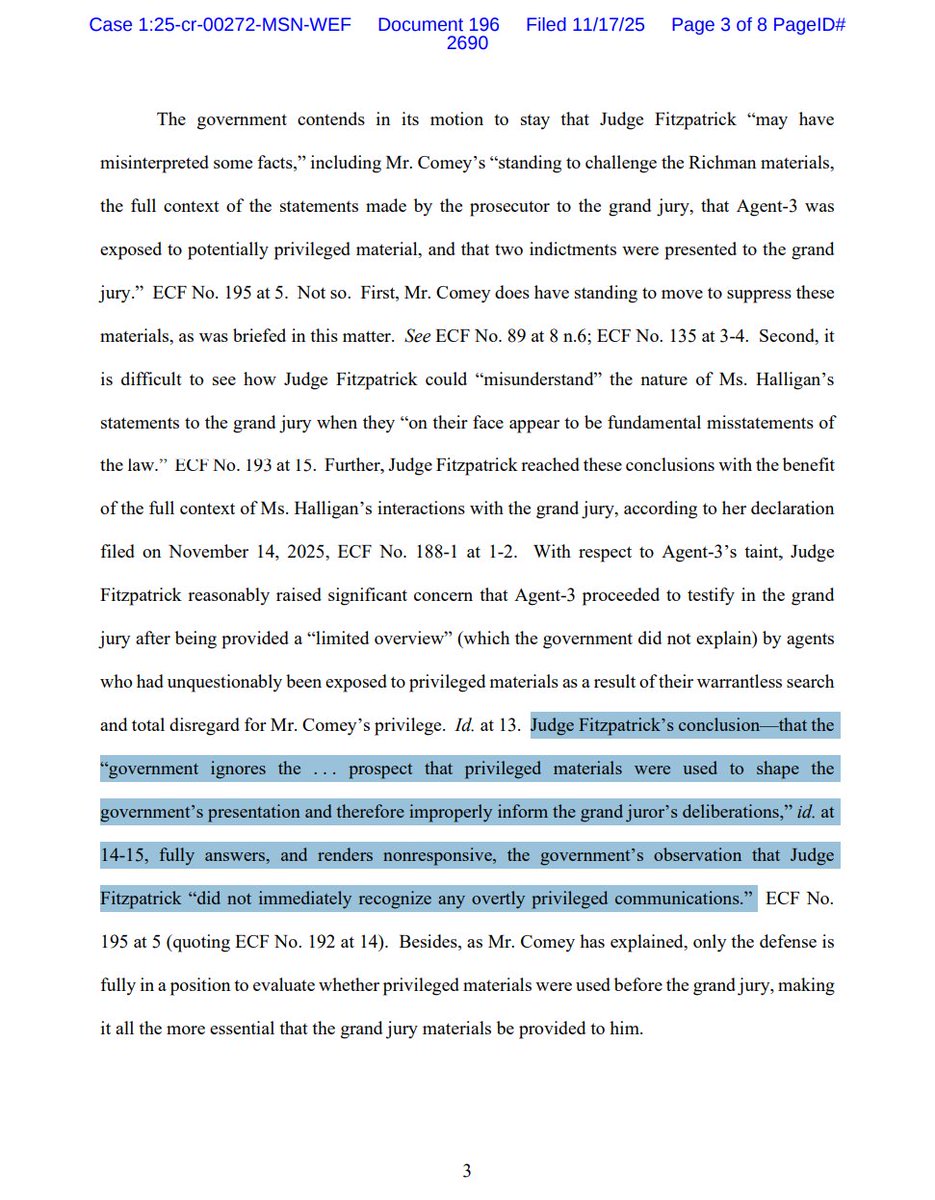
"Besides, as Mr. Comey has explained, only the defense is fully in a position to evaluate whether privileged materials were used before the grand jury, making it all the more essential that the grand jury materials be provided to him." 
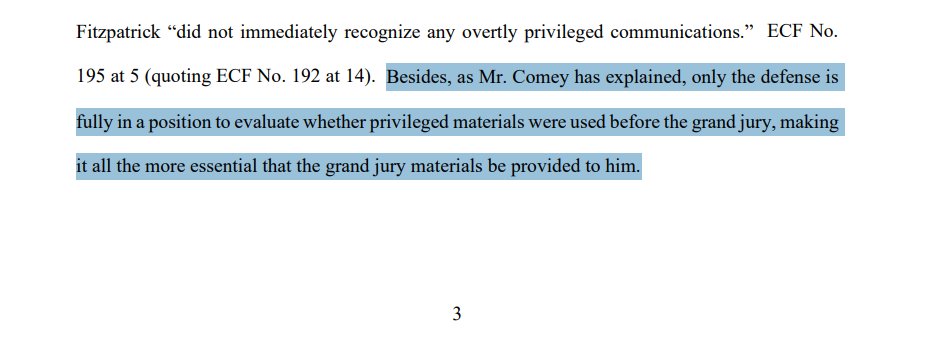
"Moreover, with respect to the presentment, the affidavit Ms. Halligan voluntarily presented raised significant concerns about whether the operative indictment was actually presented to the grand jury, and if so, by whom." 
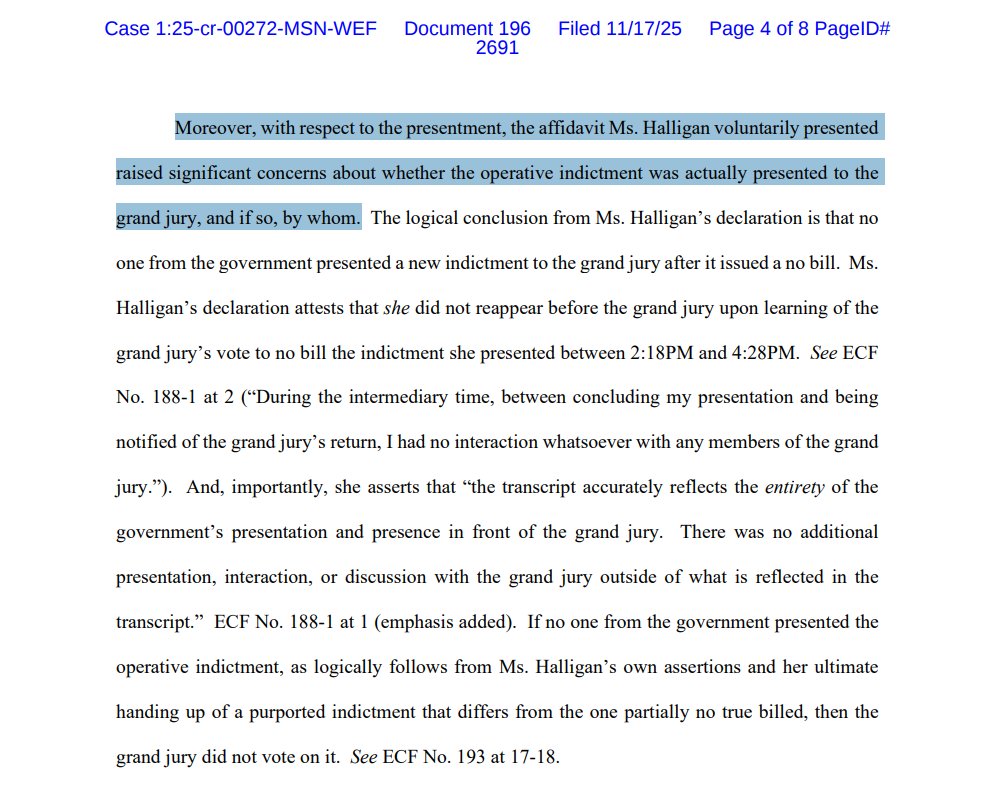
"Finally, the government ignores Judge Fitzpatrick’s finding that Ms. Halligan misstated two key issues of law to the grand jury." 
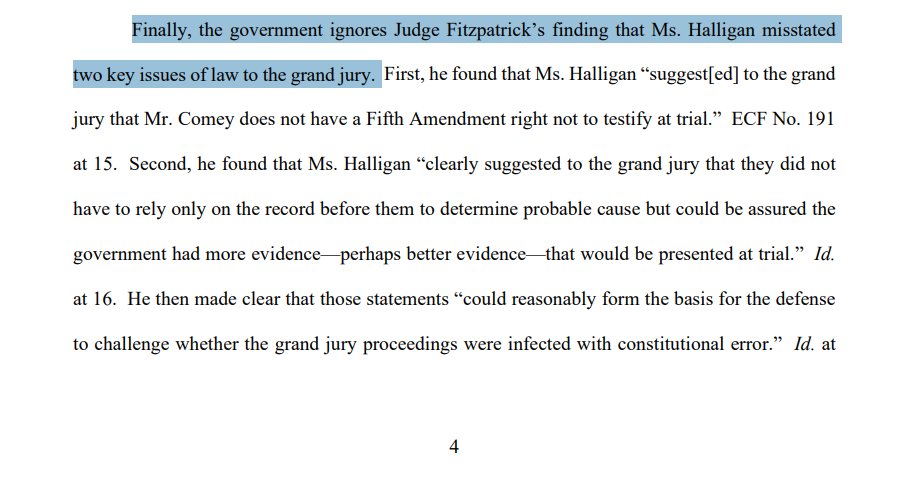
"The government has not even attempted to demonstrate why it is likely to succeed in appealing that conclusion. This Court should deny the government’s stay motion on that basis alone"
Remember that was hurdle (1) to achieve the threshold necessary for an emergency stay of the order.

Remember that was hurdle (1) to achieve the threshold necessary for an emergency stay of the order.

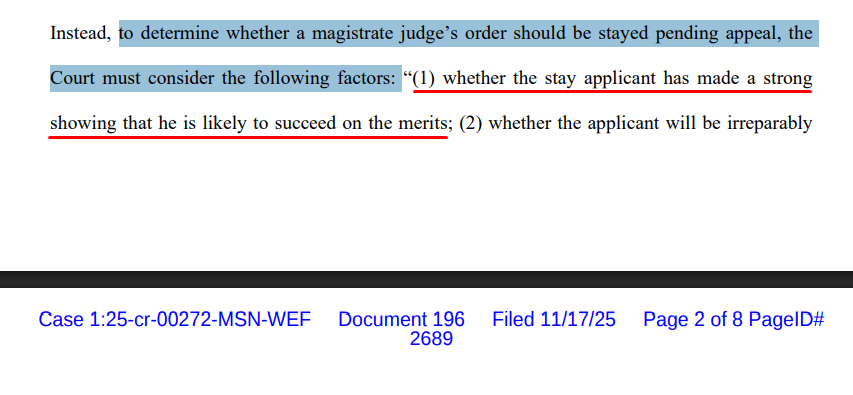
"...further attenuating the government’s interests, disclosure under the protective order means that only Mr. Comey and counsel will have access to the grand jury materials; in the event that this Court were to see matters differently than Judge Fitzpatrick, the remedy can be to preclude use of those materials in moving to dismiss or otherwise (without judicial permission)."
Interesting suggestion there.
Interesting suggestion there.

So, the defense, after a huge win with Fitzpatrick, just decimated the prosecutor's emergency motion. Absolutely wrecked it.
But then, they make the following proposal...
But then, they make the following proposal...
"To the extent [] the Court is inclined to grant a stay, the defense requests an expedited briefing schedule given the proximity of the trial date and the significant government misconduct apparent from Judge Fitzpatrick’s opinion: the government’s motion should be due November 18, 2025 at 5:00 p.m., and the defense’s opposition should be due November 19, 2025 at 5:00 p.m."
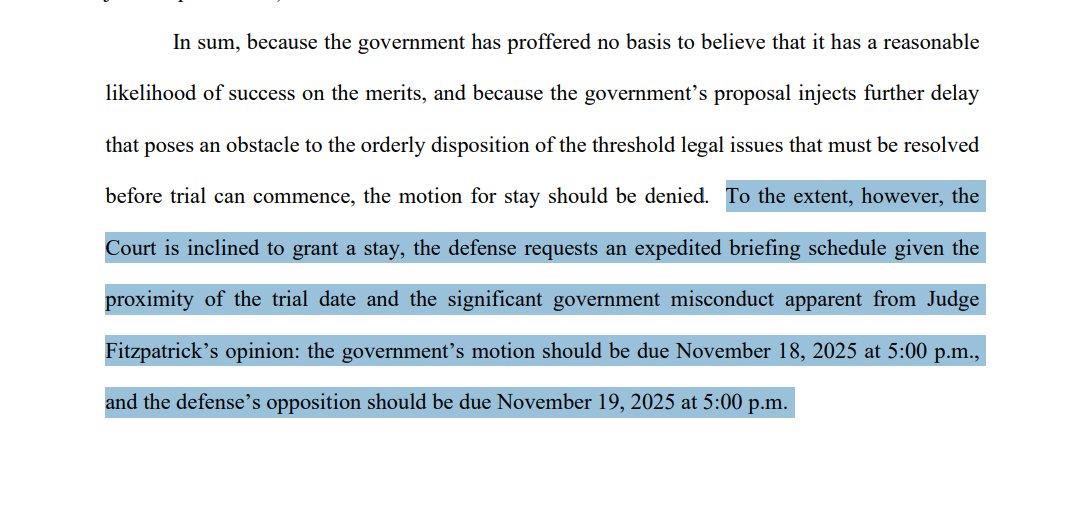
And what did Nachmanoff just grant in his order?
The same schedule the defense proposed, just +24 hrs to the prosecution and +48 hrs to the defense.
Prosecutors had asked for one week to file their objections (November 24).
That's the IN PART aspect to the Order.
The same schedule the defense proposed, just +24 hrs to the prosecution and +48 hrs to the defense.
Prosecutors had asked for one week to file their objections (November 24).
That's the IN PART aspect to the Order.
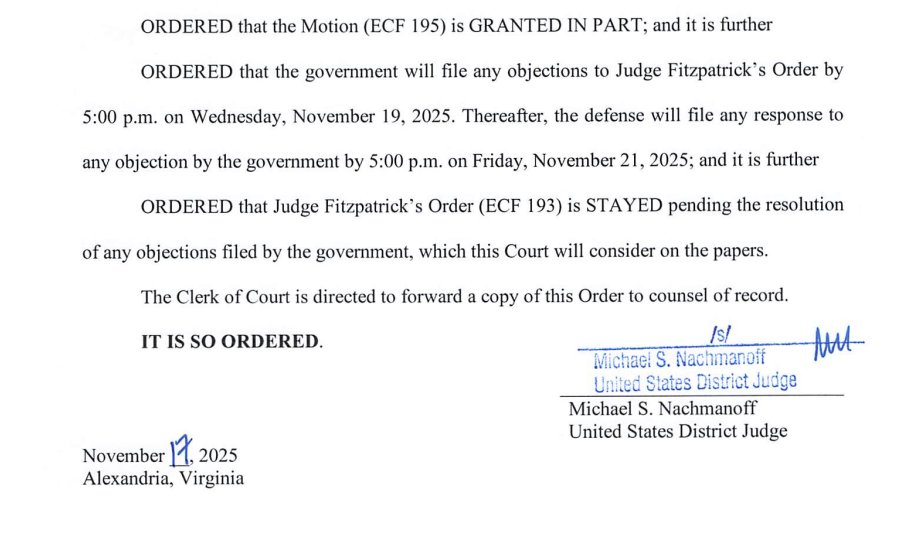
I think the only reason prosecutors got a stay at all is because the defense made that proposal.
Interesting that they did that.
Interesting that they did that.
• • •
Missing some Tweet in this thread? You can try to
force a refresh

